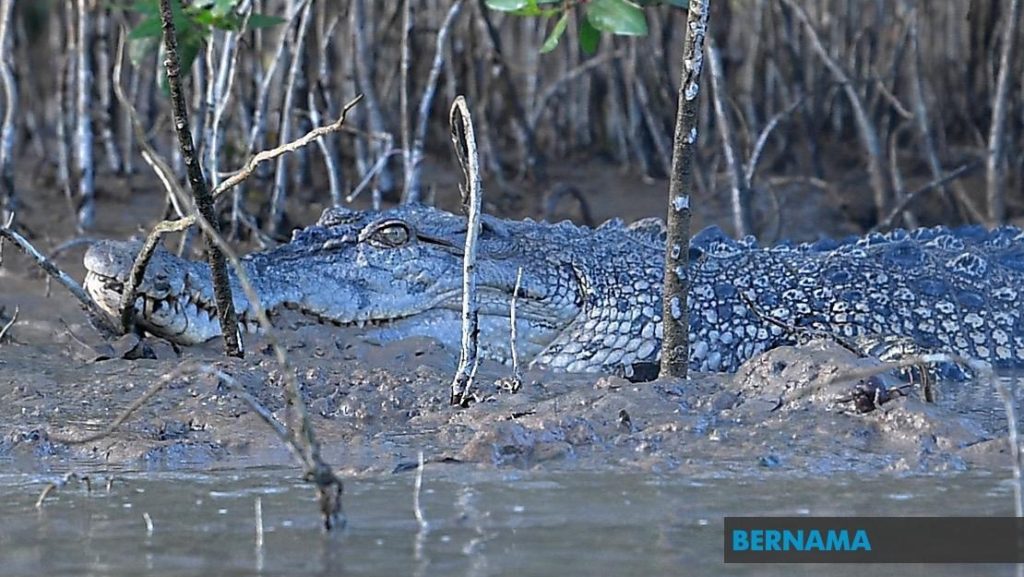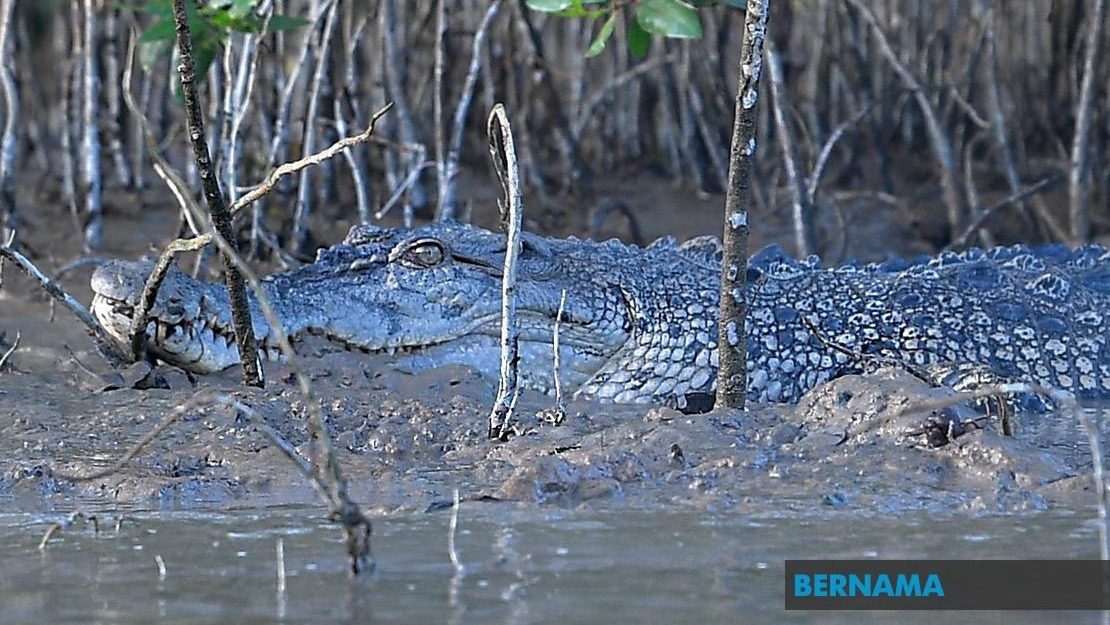Advertisements
Tragic Incident Highlights Growing Crocodile Threat in Sabah’s Rivers

LAHAD DATU, SABAH – A Tragic Crocodile Attack Shocks Community
A terrifying encounter with a man-eating crocodile ended in tragedy yesterday when an Indonesian plantation worker was mauled to death while fishing in Sungai Matamba, Lahad Datu. The incident, which took place within a plantation area along Jalan Silabukan, has sent shockwaves through the local community, highlighting the ongoing danger posed by crocodiles in Sabah’s rivers.
Horrific Attack on Plantation Worker
The victim, identified as 45-year-old Rusdi Tambah, was fishing by the riverbank when he was suddenly attacked by the 4.6-metre-long reptile. According to Lahad Datu Fire and Rescue Station chief Sumsoa Rashid, the crocodile pounced on Rusdi, dragging him into the river as horrified witnesses watched helplessly.
Advertisements
“We received an emergency call around 10 am,” Sumsoa said. “The caller reported that a plantation worker had been attacked by a crocodile while fishing along the river. Our team immediately launched a search operation, covering a 500-metre radius along the river.”
Search and Rescue: A Desperate Effort to Retrieve the Victim
Efforts to locate Rusdi began swiftly as the fire department, assisted by local residents, combed the area for any sign of the victim. The grim discovery was made approximately 50 metres from the attack site, where the victim was still in the jaws of the giant reptile.
“The fire department team and local residents located the victim with the crocodile about 50 metres from where he was attacked,” Sumsoa explained. “The victim was still in the crocodile’s mouth, and a report was made to the Wildlife Department (JHL) for further assistance.”
JHL Takes Action: Crocodile Shot to Retrieve Victim’s Body
Upon receiving the distress call, the Wildlife Department (JHL) responded quickly to the scene. The decision was made to shoot the crocodile in order to retrieve the body of the victim. The 4.6-metre-long crocodile was shot five times by JHL officers, ending the grisly ordeal and allowing rescuers to recover Rusdi’s body.
“The crocodile was shot five times by JHL officers to retrieve the body of the fisherman, Rusdi Tambah, 45, from the reptile’s jaws,” Sumsoa added. “The victim was confirmed dead and was handed over to the police for further investigation.”
Operation Ends as Crocodile Carcass Handed Over to Authorities
The crocodile’s carcass was subsequently brought ashore and handed over to JHL for further action. The operation concluded at approximately 1.10 pm, marking the end of a harrowing day for all involved.
“The crocodile’s carcass was also brought ashore and handed over to JHL for further action,” Sumsoa said. “The operation ended at 1.10 pm.”
Growing Threat: Crocodile Encounters on the Rise in Sabah
This tragic incident is a stark reminder of the increasing threat posed by crocodiles in Sabah’s rivers, particularly in areas where human activities such as fishing and plantation work intersect with crocodile habitats. The rivers in Lahad Datu, along with other parts of Sabah, are known to be home to a significant crocodile population, and encounters between humans and these dangerous reptiles are becoming more frequent.
Wildlife authorities have repeatedly warned residents and plantation workers to exercise extreme caution when near water bodies, especially during the early morning and late evening when crocodiles are most active. Despite these warnings, attacks continue to occur, often with fatal consequences.
Calls for Greater Safety Measures and Awareness
In light of the recent attack, there are renewed calls for greater safety measures to be implemented in areas where human-crocodile encounters are likely. Authorities are urging plantation owners and local communities to establish clear protocols and safety guidelines to protect workers and residents from potential crocodile threats.
The Wildlife Department has also emphasized the importance of public awareness campaigns to educate people about the risks associated with crocodile habitats and the steps they can take to minimize danger.
Conclusion: A Call for Vigilance
The tragic death of Rusdi Tambah serves as a sobering reminder of the unpredictable and dangerous nature of crocodile encounters in Sabah. As authorities continue to work on mitigating these risks, it is crucial for communities to remain vigilant and heed safety advice to prevent further loss of life.

